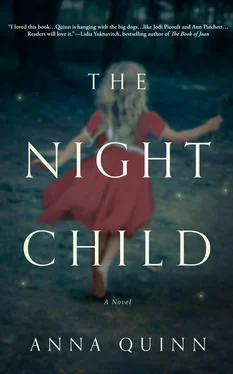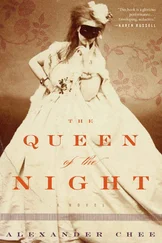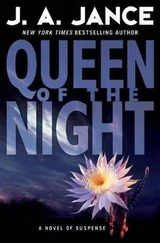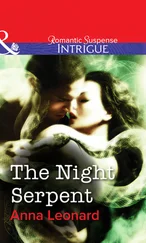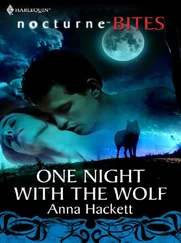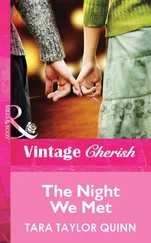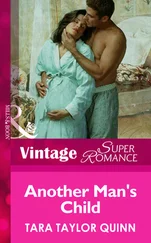“Smoking is bad for you!” she says, scrunching up her face and touching her wand to the cigar he’s holding. “I’m going to turn that cigar into a … a …”
“Hey, hey, what about your mom’s gift?” James says in a voice that’s a bit tipsy.
“Yes! Now it’s Mommy’s turn!” She runs over to the last gift and brings it to Nora. “Here, Mommy, this feels like a book too!”
Nora looks at the perfectly wrapped gift on her lap. She opens the wrapping slowly, exposing a child’s picture book: The Crabapple Fairy. Her face heats up, and panic seizes her. It’s the book her father read to her every night before bed. She nearly faints.
“Mommy? Do you like it?”
“It, it’s lovely,” Nora says. It’s only a book , she tells herself, and she takes a deep breath, but slowly, so no one will notice she must calm herself. She stands up and places the book on the coffee table. “Fiona, I think I’m going to read it later. I’m awfully tired right now, and you should be in bed. You don’t want to interrupt Santa’s plans, do you? Can you whisk us upstairs with that magic wand of yours?”
“Will you read it to me tomorrow?” Fiona asks, twirling around, still enjoying her wand.
“Of course,” Nora says, though of course she will not.
* * *
“She’s a sweetheart,” James says later, when they are alone in the kitchen. He is pouring more whiskey into his coffee. “Want it?” he asks her, holding the mug out to her. She takes it, sips a little. Heat rushes down her throat.
“You okay, Sis? You seem tense.” He pours coffee into another mug, one that says best dad ever, and adds a large gulp of whiskey.
“Was the fairy book your idea?” she says. “Did you tell Stephen to buy this for me?”
“What? Stephen didn’t send that box!”
She studies him carefully. “The gifts are from Dad,” she says then, in a small, thin voice.
James is silent. Holding his coffee mug with two hands.
“Do you know where he is?” she asks, fear spreading through her veins.
“Jesus, Nora, if I did, don’t you think I’d have told you?” He takes a sip of his Irish coffee, looks at her for a long moment, and says, “You know, Nora, maybe he just wants to make amends.”
She walks into the living room then picks up the fairy book from the coffee table, opens the fireplace screen, and throws the book into the flames. Pieces of fairy wings burn and flutter up the chimney.
Nora, still in her nightgown, runs barefoot down the stairs and into the kitchen where her mother cracks eggs into a cast-iron skillet. “Mommy!” Nora shouts. “The dead tree in our front yard grew flowers!”
“The tree wasn’t dead,” her mother says, lifting the edges of the eggs with the spatula. “It’s a crabapple tree, sure ’n’ that’s how they look.”
“Crabapples!” Nora says, happily. Just the word alone, crabapples, the way it pops and bounces in her mouth, makes her giggle. “Mommy, why are they called crabapples? Are they crabby and grouchy and mean?” she asks, laughing.
“Nora,” her mother says, “will ye stop with the questions and set the table?”
“But, Mommy, can you eat them?”
Her mother turns to her, holding the spatula in the air. “Nora! No, you can’t eat them. Now set the table!”
Nora is seven, and they’ve just moved from Chicago’s south side to its outskirts because now her father is the vice president of the Bank of Chicago and because the colored people made her mother hysterical, made her shriek, “I won’t be raising me children around niggers,” made her threaten to take Nora and James back to Ireland for good. And though Nora didn’t understand her mother’s troubles, more than anything, she secretly hoped they would go back to Ireland. They traveled there only one month a year, and she missed her grandfather tremendously—missed their walks through bogs that smelled of dung and clover, missed fishing for brown trout and summer salmon, missed the times when he’d play jigs and reels on his accordion, his rough hands flying over the tiny buttons making her forget she was ever afraid of anything.
But her mother didn’t take them away to Ireland—instead her husband bought her a house on five acres of land.
“Hey, what’s all this about crabapples?” her father asks, coming into the kitchen, wearing a starched white shirt, green paisley tie, navy suit pants, and the black shoes Nora had polished the night before. He swoops her up and sets her on the counter so she can look directly into his eyes, which makes her feel like they are king and queen of their own island.
“They never grow up,” Nora says, matter-of-factly, “and they grow out of ugly dead trees, and you can’t even eat them.”
She wraps her arms and bare legs around her father and examines his face to see if he is just as surprised about crabapples. She guesses not, as he begins to tickle her. “And you know what else?” he asks.
“What?” Nora says giggling, knowing for sure nobody is smarter than her father.
“There’s a song about crabapples.” And he sings then, in his church voice, a voice so big Nora can feel it inside herself. “ Crabapples, crabapples, out in the wood, little and bitter, yet little and good! ”
He lifts Nora up and twirls her around the kitchen, singing, “ The apples in orchards, so rosy and fine, are children of wild little apples like mine .”
But then, her mother’s voice. “Karl! For God’s sake, stop!” Maeve doesn’t like it when Karl acts silly, which seems enormously unfair to Nora. Her mother never uses the Lord’s name in vain when her father plays with James.
Karl sets Nora on her chair, which is right next to his, straightens his tie, and sits down at the table.
“Is that the whole song, Daddy?” Nora asks, hugging her knees to her chest.
Her father winks and puts a finger to his lips to quiet her so they won’t further aggravate her mother. He whispers, “ One little apple I’ll catch for myself. I’ll stew it and strain it to store on a shelf .”
“James, breakfast!” her mother shouts, carrying the pan of eggs to the table. James clamors down the stairs and into his chair. He has two plastic army men, one in each fist, and begins making them fight each other on his plate, shouting, “ Pow! Pow! Pow! ” until one of the soldiers falls dead into his eggs, and James giggles so hard he falls off his chair.
“Nora, put your knees down,” her mother says then and pushes an egg roughly onto Nora’s plate with the spatula, breaking the yolk, even though she knows how much Nora likes to poke the egg open herself and let the yellow out slow, slow, slow onto her toast.
Nora’s heart bangs with anger, and she lets her mother know it by humming the new song and not putting her knees down either.
“Put your knees down,” her mother says, her voice quiet, the kind of quiet that makes James go quiet, the kind of quiet that means she will knock you into the furniture as soon as Daddy goes to work, but Nora keeps humming, jabbing the deflated egg over and over with her fork.
“Nora,” her father says softly, buttering his toast.
“Is that it?” Maeve asks, glaring at him. “She disobeys me and all you can say is ‘Nora’?”
Sometimes Nora wishes her father would raise his voice to her mother, take charge, but mostly he just takes Nora aside before he leaves for work and says, “Now, Nora, be a good girl, and don’t get your mother’s Irish up today.”
He’d told her once that her mother couldn’t help it when her Irish came up because a long time ago the Irish people were treated meanly, and since then, most Irish children, especially the red-headed ones (like her mother) were born with a temper. Nora worries she herself has a temper even though her hair is blonde because once when she was angry she’d thrown her doll across the room at the dresser and didn’t even try to fix her for days. She’d felt so bad about this she told Father Donahue at confession the following Saturday. The priest said throwing a doll was only a venial sin, not a mortal sin, because of the doll not being a real person. He told her to say ten Hail Marys as penance and to not do it again because a person who frequently indulges in venial sin is likely to collapse into mortal sin. When she’d asked the priest what “ collapse into mortal sin ” meant, he’d told her it was one step closer to ending up in hell.
Читать дальше
